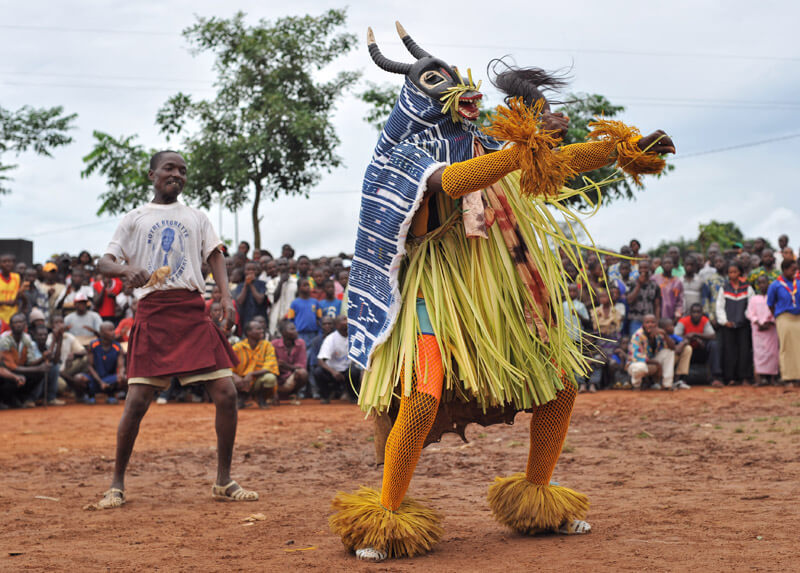The Bété people have inhabited the dense forests of western Ivory Coast for centuries, developing a society intimately connected to the forest environment. Their oral traditions speak of migrations and the establishment of numerous autonomous villages, each governed by councils of elders and age-grade associations.
Traditional Bété society is organized around age groups that progress through different social responsibilities. This system, combined with strong village autonomy, created a decentralized but cohesive social structure. Elders play crucial roles as repositories of wisdom, mediators, and spiritual guides.
The Bété are internationally recognized for the spectacular Zaouli mask dance, inscribed on UNESCO's Representative List of Intangible Cultural Heritage. This acrobatic dance, performed in elaborate costumes and masks, embodies Bété artistic expression and spiritual beliefs, celebrating femininity and beauty.
Modern Bété culture continues to evolve while maintaining traditional practices. Bété people have been prominent in Ivorian politics, education, and arts. The language is taught in schools in Bété regions, and cultural associations work to preserve traditional practices for future generations.
